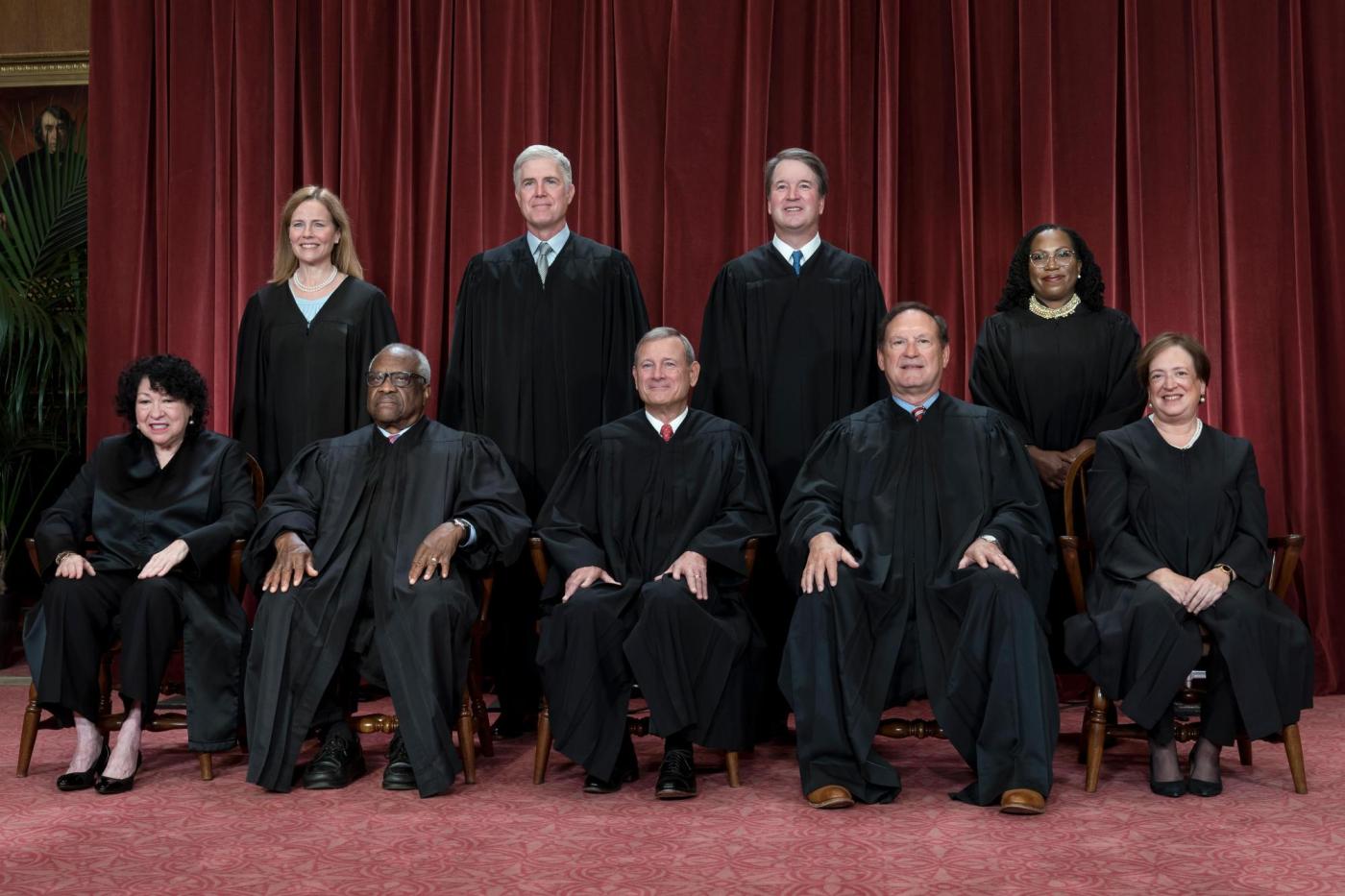
Other voices: Supreme Court needs a real ethics code
Holding judges to high ethical standards is essential to the U.S. legal system. The Supreme Court’s recent adoption of an ethics code is an overdue acknowledgement of this reality. But the court’s failure to include any enforcement provisions reduces the code to a paper tiger. The public shouldn’t fall for it.
Where ethics are concerned, the high court has long taken the approach of adopting “rules for thee but not for me” — requiring all other federal judges to adhere to high standards while exempting itself. Not surprisingly, the justices have exhibited a series of embarrassing ethical lapses, including failing to recuse themselves despite owning stock in companies appearing before them; failing to disclose lavish vacation gifts; using public employees to help promote and sell books; and accepting free accommodations for themselves and guests.
These breaches have led to a public outcry, and rightly so. They stain the court’s reputation and reduce public confidence in its authority and independence.
At a time when public trust in democratic institutions is low, such failures are all the more intolerable.
Yet the court’s new code could well breed more public cynicism, by continuing to allow its members to sit as their own judge and jury, a standing invitation for misconduct. As one example, the justices have long claimed that disclosure rules mandated by Congress in 1978 didn’t apply to valuable gifts they received; such gamesmanship is likely to doom any new self-policing system.
Since the court has refused to take enforcement seriously, Congress should do so.
The Constitution provides lawmakers with broad latitude in regulating the judicial branch, and the legislature has a long history of imposing requirements on the high court, including mandating recusals in cases where justices’ impartiality could be questioned, and requiring disclosure of their financial holdings and outside income.
Because their judicial decisions are not subject to review, the justices seem to think their recusal decisions shouldn’t be either. There’s no constitutional basis for such a view, and no reason why federal judges who review recusal judgments could not also consider the high court’s.
At the least, the chief justice should be empowered to review and rule on recusal judgments made by other members, and they on his.
Judicial ethics are of paramount importance to democracy. It doesn’t speak well of the justices that they’ve failed to grasp the obligations this imposes on them — and it was an insult to claim, as they did in a patronizing statement, that the new code is merely a matter of clearing up the public’s “misunderstanding” about the court’s rules. It is now up to Congress to hold the justices accountable.
In drafting legislation, lawmakers should strive for bipartisan consensus — which shouldn’t be hard, given the bipartisan nature of the court’s ethical breaches. They should also take care not to allow ethics enforcement to become politicized. But they can’t let the court’s blindness to its own injustice continue unchecked.
Related Articles
F.D. Flam: It’s past time scientists admitted their COVID mistakes
Thomas Friedman: Understanding the true nature of the Hamas-Israel war
Bruce Yandle: Presidential candidates and the myth of dwindling manufacturing
Jonathan Bernstein: Democrats can’t blame Joe Manchin anymore
Lara Williams: How to stop wind turbines killing bats and birds


